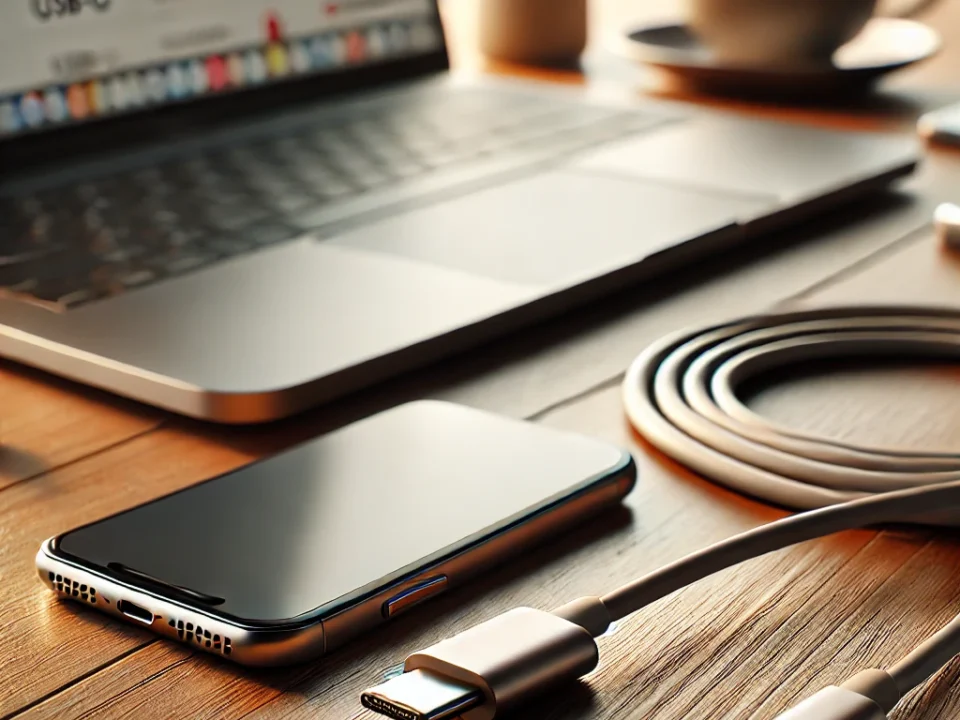
Maximizing Performance: The Synergy of PD Protocol and Type-C Interface
2024-12-13
Keep Your Cables Safe: Essential Tips to Prevent Data Cable Breakage
2024-12-16Understanding USB Data Cable Decryption Basics
USB data cable decryption refers to the procedures and methodologies involved in accessing or interpreting the data transmitted through USB cables. In an era where data security is paramount, it’s essential to understand the implications of how data can be intercepted or decrypted via USB connections. At its core, USB technology, while widely used for data transfer, presents certain vulnerabilities that can be exploited by cybercriminals or malicious entities.
To mitigate these risks, using high-quality cables such as the TPE PD 60W 3A USB Type C to USB C Cable is crucial. This cable not only supports fast data transfer and charging but also ensures a higher level of security, reducing the likelihood of data being intercepted during transmission. With advanced protection against unauthorized access, it serves as a reliable solution for those looking to safeguard their data while using USB connections.
When data is transmitted through a USB connection, it can be susceptible to various forms of interception. Hackers might employ techniques such as “man-in-the-middle” attacks, where they position themselves between the device and the USB port, capturing sensitive information such as passwords, personal identification numbers, or proprietary data. Moreover, certain USB cables can introduce security weaknesses; for instance, charging cables may have altered configurations that allow for easy data access while bypassing encryption protocols.
Recognizing these vulnerabilities is crucial for anyone who frequently uses USB data cables. Selecting a USB cable with enhanced security features can significantly mitigate the risk of unauthorized data access. Cables equipped with advanced encryption standards, physical security measures, and tamper-evident designs can greatly enhance data integrity during transmission. Furthermore, it is advisable to prioritize cables from reputable manufacturers who adhere to industry standards for data security.
Understanding USB data cable decryption is not only necessary for safeguarding personal information but is also essential for organizations that manage sensitive data. By being aware of the potential risks and the security options available, both individuals and businesses can make informed decisions when selecting USB data cables. Ultimately, the fight against data interception starts with knowledge about the tools we use to transfer our information.
Key Features to Look for in Secure USB Cables
When selecting a secure USB data cable, it is crucial to consider several key features that can significantly impact both security and performance. One of the foremost aspects to look for is certification. Cables certified by recognized standards, such as USB-IF (USB Implementers Forum), ensure compliance with safety and performance norms, thereby reducing the risk of data breaches and enhancing reliability.
In addition to certification, choosing a high-quality cable like the TPE PD 60W 3A USB Type C to USB C Cable is essential for ensuring both security and optimal performance. This cable not only supports fast data transfer and efficient charging but also comes with built-in features designed to protect your data from interception or unauthorized access. By using certified cables like the TPE PD 60W 3A USB Type C to USB C Cable, you can significantly reduce the vulnerabilities associated with USB connections and ensure a safer and more reliable data transmission experience.
Another critical feature is data transfer speed. Modern USB cables come in various versions, such as USB 2.0, USB 3.0, and USB 3.1, each offering different speeds. For secure and efficient data transfers, it is advisable to choose cables that support higher transfer rates, as they typically indicate advanced technology and better shielding against interference. A capable USB cable not only facilitates faster data handling but also minimizes potential vulnerabilities during the transfer process.
Compatibility with a range of devices is another important consideration. It is essential to verify that the USB cable can connect seamlessly with various devices, including smartphones, laptops, and external drives. This versatility ensures that users can maintain secure connections across multiple platforms without the need for different cables.
Furthermore, the inclusion of specific encryption technologies within the cable can provide an additional layer of protection against unauthorized access. Some manufacturers include built-in encryption mechanisms that safeguard data during transfer, making it nearly impossible for malicious actors to intercept sensitive information. It is advisable to investigate these options when selecting a cable designed for secure data transfer.
Lastly, the materials used in the cable’s construction can affect both performance and security. Cables made from high-quality materials, including robust shielding and durable insulation, are less susceptible to damage and interference, which ultimately preserves data integrity. By focusing on these key features, users can make informed decisions when choosing a secure USB data cable that meets their needs.
Top Recommended USB Data Cables for Data Security
In today’s digital landscape, ensuring the security of sensitive data during transmission is paramount. As a result, choosing the right USB data cable has become increasingly critical for both personal and professional use. Below is a curated list of highly recommended USB data cables that excel in providing robust security features, including their specifications, encryption protocols, user reviews, and price points.
The first notable option is the Anker PowerLine+ USB-C to USB-C 2.0 Cable. With an impressive 100W charging capability and support for data transfer speeds up to 480 Mbps, this cable also incorporates reinforced stress points that enhance durability. Users appreciate its sturdy build and high quality. However, it’s the secure data handling that makes it a top choice, supporting encrypted data transmission thanks to its compatibility with various encryption protocols.
Another strong contender is the Belkin USB-A to USB-C Cable, renowned for its seamless functionality. This cable allows for secure data transfers with speeds up to 5 Gbps. It is recognized for its ease of use and strong construction, making it a favored choice among consumers looking for reliability. The data confidentiality it offers through adherence to industry standards further solidifies its reputation as a secure selection.
Finally, the UGREEN USB 3.0 Data Cable stands out for those needing a combination of affordability and security. This cable provides speeds up to 5 Gbps and is designed with shielding to prevent data interception. User reviews often highlight its value for money, paired with quality performance, making it suitable for various applications without compromising on safety.
When selecting a USB data cable, it’s essential to consider these factors: specifications, encryption capabilities, and user experiences. This detailed review of the top recommended options serves as a resource to guide informed purchasing decisions, ensuring that data security requirements are effectively met.
Best Practices for USB Cable Security
Once a suitable USB data cable has been selected, maintaining its security is paramount to safeguard the data transmitted through it. The first step in ensuring USB cable security is proper handling. Users should make it a habit to handle cables carefully, avoiding sharp bends or twists that may lead to internal damage. Additionally, connecting and disconnecting the cable with care not only preserves the integrity of the cable itself but also protects the associated devices from potential harm.
Storage practices play a critical role in prolonging the life and security of USB data cables. Cables should be kept in dry, cool areas to prevent wear and tear from moisture or excessive heat. It is advisable to use cable organizers or pouches, which can prevent tangling and protect against physical damage. Furthermore, it is important to avoid leaving USB cables connected to devices when not in use, as this can expose them to potential vulnerabilities or damage from power surges.
Regular updates for software and firmware related to connected devices are essential to USB cable security. Manufacturers often release patches and updates aimed at addressing security vulnerabilities; hence, keeping devices updated can significantly reduce the likelihood of attacks. Secure connections are equally important; users must ensure they only connect USB cables to trusted devices. Before using any external USB sources, consideration should be given to their integrity and reliability.
Recognizing potential threats is crucial for effective data protection. Users should be vigilant for common signs of tampering or data loss, such as unusual fluctuations in file sizes or unexpected behavior of connected devices. By being aware of these warning signs, individuals can take prompt action to mitigate risks. Ultimately, adopting these best practices will empower users to protect their data more effectively and maintain the security of their USB connections.
Related Products:Apple Data Cable for iPhone 8/11/12/13/14 PD USB-C to Lightning(braided)









